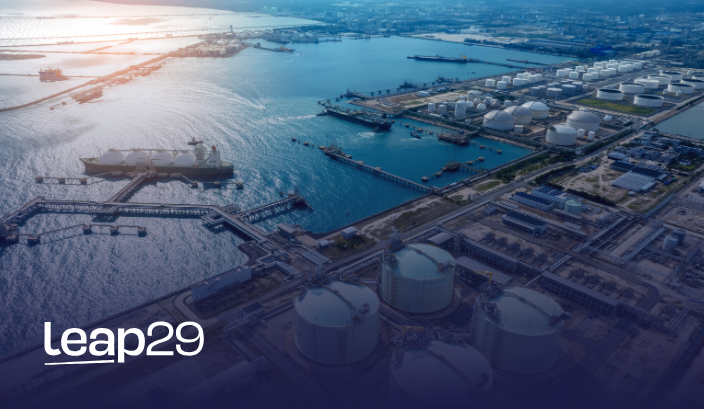This is a heading
First off, I wouldn’t imagine that you need me to tell you about the global situation we all find ourselves in, not unless you have immediately returned from somewhere completely non communicable such as a distant Amazonian jungle expedition, but if that’s the case I wouldn’t be overly worried about what I’ve got to say before speaking to your family in honesty. 2020 has seen the world as we know it well and truly transformed, in truly bizarre circumstances that have caused shock-waves throughout effectively every industry, (yeah I hate that horrible buzzword ‘unprecedented’ too don’t worry it isn’t just you).
What am I aiming to explore in this article?
In particular, the Oil and Gas industry has taken a big hit recently on which I do have a few opinions; specifically focusing on the Covid-19 pandemic and the geopolitics which led to the oil price truly heading into freefall. In addition to my thoughts, I have some great input from a number of senior figures within the industry who for the purpose of ensuring that they stay on the correct side of their respective employers corporate stance, will remain anonymous, boring I know! I’ll preface this by saying that I will try to be as positive as possible while being true to myself in that I am a massive believer in at least trying to take an objective and pragmatic view of any given situation regardless of its apparent severity, mentally taking the circle of influence vs circle of concern approach to looking at problems and the subsequent attempt at the eradication of worry according to what I can directly control or influence. That being said, this isn’t on the same level as trying to avoid worrying about whether it’s going to rain at the weekend, how I’ll perform under pressure on the golf course, or if I’ve got nutrition right for a run / cycle. What we face here is much more, and for millions of us this global situation will directly affect the second step of Maslow’s hierarchy of needs for us in that it has a massive impact on our personal security, employment, resources, and our health (both mental and physical). But before we get all existential and look more at chasing self actualisation and the modern trend of insatiable craving for online validation, let’s talk business.
- It’s sh**e
- Aside from staying at home etc, things are completely out of our control
- Undeniably it will affect us all to a varying degree dependant many factors including career / industry, geography, socioeconomics, and family structure.
- Life will go on, albeit not in an identical way as before
- It’s sh**e
What, why and how does the COVID-19 pandemic impact the Oil and Gas industry?
Things were undeniably always going to be influenced significantly by the Covid-19 pandemic, however due to the fact it isn’t the sole issue facing the industry at present, it will remain unclear to what extent this would have been. The way that I see it is, the majority of engineering functions have the capability to work from home if not in a slightly limited capacity. As a result, one of the main hurdles the industry is currently facing due to COVID-19, is the mobilisation or change of personnel for offshore projects. However, over the past months many organizations have demonstrated that this can be managed successfully generally speaking with the implementation of quarantine / testing protocols. That’s a view shared by most of the contractors I represent within our Norwegian client base, in a short that although it’s not as easy to communicate and there are technology barriers to overcome, such as smaller screens or remote access, projects can continue really quite effectively.
How does the oil price shift affect things, now and going forwards?
This is predominantly the area for which I have sought guidance from senior figures in both engineering and human resources within the Oil and Gas industry in the Nordic Region. These professionals operate across Norwegian arms of operators, global EPCI companies, providers of offshore and subsea equipment / tooling, and recruitment / manpower suppliers. Here are few key points from our conversations:
“The main issue we are seeing is crew changes and mobilizing guys from here to site, many trips have extended to keep things moving but now we need to change and that’s the challenge”
“Project wise those that are pushed to 2021 will see a possible lack of preparation and then a struggle to get offshore in an already tight window for the season”
“We aren’t hugely affected at the moment in that many of our projects are planned maintenance and essential works, but how things will play out going forward with tendering activities, it’s really tough to say”
There were two overwhelming takeaways for me here, firstly being that as I said above, Covid-19 alone would have had a minimal effect on what is an essential industry. I believe with the significant investment available it would have been able to overcome logistical speed bumps effectively. Secondly, the geopolitical aspect that developed earlier this year was a real thorn in the side of the industry. Although it looks to have been removed thanks to the agreement struck by OPEC producers and allies, the consequent pain caused looks to continue for a good while to come. The deal agreed via video conference on Sunday 12th April which committed to slash global output by circa 10% is the largest cut in oil production to have been committed to in this way.
More information on this deal can be reviewed here.
Despite this cut, the impact of the Covid-19 lockdown almost worldwide has seen such a dramatic decline in demand for oil that the price of WTI Crude oil peaked at a crazy negative figure for a brief time. Traders played safe and producers rushed to find alternative storage options wherever possible, but still a worrying time where technically producers would be paying to get rid of their key commodity. A couple of my discussions highlighted to me the extent to which 2020 / 2021 was forecast by many to be a real period of resurgence for the industry following the depression of 2014/2015. With that in mind, projects were already cost sensitive due to pressure from operators and so there was limited ‘fat on the bone’ to be trimmed. Furthermore, the requisite reductions of late have not only had visible impacts; but posed significant questions as to where the ‘line in the sand’ lies with regards to operating costs and the imperative safety of those physically involved in the execution of projects?
Which companies are affected and to what extent?
First off, we traditionally see operators at the top of the mountain where they have always been, here they are the source of the metaphorical river of contracts and therefore cashflow, if you’ll pardon the pun. This is simply because as long as they hold the relevant producing rights, they also hold power over who wins the contracts and therefore all so important trickle-down effect of stability and security. Are they affected here? Undoubtedly so, hence the cost cutting and various restructures. However, assuming they weather the storm of another industry downturn they are of course in a position that once things rise back above their break-even number, they can kick things back off. Secondly, EPCIs and service companies who are seeing pressure to cut costs and having projects shelved all over are in a precarious position. They have shown different approaches to getting through this period, but you don’t need me to tell you that I’m sure. CAPEX projects at the stage that it would be financially detrimental to push back are going ahead, as well as those for which funding is pre allocated and therefore inconsequential in many ways. Of course, essential work, planned maintenance etc have to go ahead, but in the majority of cases that fall into the pre allocated category I mentioned. What we are seeing amongst those I have spoken with is a line being drawn between ‘get it done’ and ‘push it to the right by 12 months’. As a result, for many companies the remainder of 2020 is taken up with existing offshore work or tendering, and little in the middle in terms of engineering work. I suppose this poses another question, how prepared will these guys be for 2021, or will that become a relatively short offshore season? There is of course a huge knock on effect to tertiary businesses which supply to the Oil and Gas industry, for example equipment suppliers, manufacturers, manpower providers, payroll services to name but a few.
What is next for the Oil and Gas Industry in Norway?
This will be something in hot discussion right now as existing projects plough on as discussed above, but the question is do they ‘ride it out or diversify?’. I think many will ride it out, keeping an eye on the oil price and the forecasts in which many conservatively tip to climb to the region of $80-90 a barrel, which given the negative figure we have just seen would be a incredible and hugely encouraging sight. For those companies that are thinking about diversifying, what are your options? Offshore wind is the obvious choice and something I have discussed with a couple of the EPCIs in Norway. The key attraction for this option is being the ease of transition to the installation of structures and subsea power cables, so this wouldn’t be as big a procedural change as say, subsea mining would be. This is something keenly encouraged by the Norwegian government as seen with their Company Internal Education initiative to upskill employees and to better position these businesses for what the future holds. Hiring wise, we are surely going to see a relatively fallow period simply due to the decrease in project demand, but what we will then see I believe is a contractor driven market as things pick up. I believe this will initially be tentative and the perceived financial gamble is less than taking on a raft of employees so to speak.
Summary
It’s a strange time we find ourselves in, but things will change both with the health pandemic and with the industry downturn, and when it does how will you be positioned to maximise personal or business potential? To discuss anything included, opportunities or how I can help with contract personnel for your team; feel free to get in touch: Angus McCormick, amccormick@leap29.com or call me on 0047 8150 3589 ext 145





